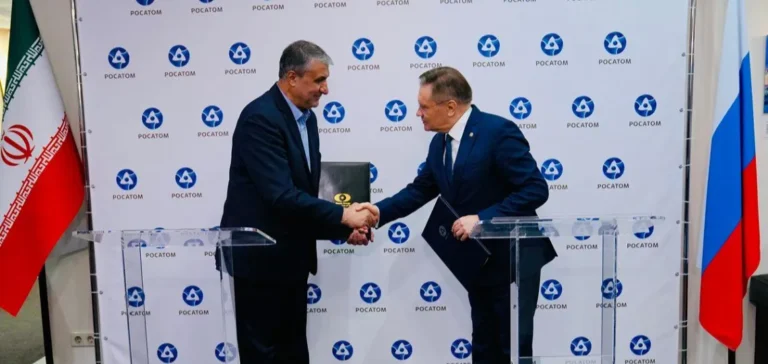The Atomic Energy Organisation of Iran has signed a memorandum of understanding with Rosatom, the Russian nuclear energy agency, concerning cooperation on the development of small modular reactors (SMRs). The agreement was formalised in Moscow during the World Atomic Week forum, in the presence of the Iranian organisation’s president, Mohammad Eslami, and Rosatom’s Director General, Alexei Likhachev.
Towards industrial deployment of SMRs in Iran
The agreement includes the preparation of contracts for the design and construction of these reactors on Iranian territory. According to Iranian authorities, SMRs will play a key role in the acquisition of nuclear expertise and in the development of local industries related to the manufacturing of power plant equipment. The memorandum specifies that the cooperation will comply with the national laws and international obligations of both countries.
These small-scale units are viewed by Tehran as a flexible solution to regional energy needs and supply security. No specific timeline or location for the future sites has been disclosed, but the signature represents a significant step in expanding Iran’s nuclear capabilities beyond the Bushehr site.
Rosatom strengthens its presence in the Middle East
Rosatom stated that discussions also addressed the progress of ongoing projects in Bushehr, where a Russian-designed pressurised water reactor (VVER) with a capacity of 915 megawatts electric is already operational. Two additional VVER-1000 units are under construction at the same site, located on the Persian Gulf coast.
The meeting took place on the sidelines of the international nuclear energy forum, where the Iranian delegation held several discussions with industry stakeholders. The growing cooperation between Tehran and Moscow in civilian nuclear technology comes as international sanctions continue to affect parts of Iran’s economy.






















